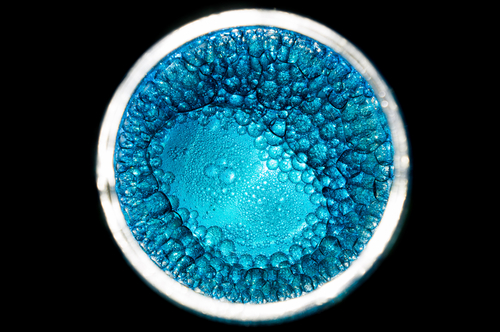No Lack of Juvenile SSc Patients Available for Clinical Trials, Studies
Written by |

 At times, a major roadblock to conducting clinical trials is enrolling enough patients to fill a study for appropriate data analyses. This may not be the case for studies involving patients with juvenile localized scleroderma (jLS), according to a study from Hackensack University Medical Center. The study, led by Dr. Suzanne Li and Dr. Brian Felman, evaluated the feasibility of enrolling 50 jLS patients for a clinical trial investigating systemic immunosuppressive treatment.
At times, a major roadblock to conducting clinical trials is enrolling enough patients to fill a study for appropriate data analyses. This may not be the case for studies involving patients with juvenile localized scleroderma (jLS), according to a study from Hackensack University Medical Center. The study, led by Dr. Suzanne Li and Dr. Brian Felman, evaluated the feasibility of enrolling 50 jLS patients for a clinical trial investigating systemic immunosuppressive treatment.
“The target enrollment (50 subjects) was reached,” wrote the authors in “A Pilot Study to Evaluate the Feasibility of Conducting Juvenile Localized Scleroderma Comparative Effectiveness Treatment Studies,” presented by Dr. Li at the 2014 American College of Rheumatology Meeting. “All sites enrolled subjects, with enrollment taking approximately 23 months to complete following study initiation at the first site.”
A majority (73%) of patients were female, with a median age of 12.7 years at time of enrollment. Patients were enrolled in one of three groups: methotrexate (MTX), MTX with intravenous corticosteroids (IV CS), or MTX with oral CS. These treatments are part of a standardized treatment regimen designed along with a subgroup of the LS Children’s Arthritis and Rheumatology Research Alliance (CARRA), which strives to improve long-term outcomes from treatment for jLS patients.
“This is the first study to explore the feasibility of conducting comparative effectiveness treatment studies in jLS,” noted the authors. “This study will enable us to evaluate and refine clinical tools needed for treatment studies based upon study data, and identify issues related to conducting jLS treatment studies.”
Techniques used to enroll patients in the MTX/CS study may well be suited to other trials, such as one that investigated serum autoantibodies in patients with juvenile systemic sclerosis (jSSc). Although this study has already been completed, 28 patients needed to be enrolled, 26 of which had jLS.
[adrotate group=”3″]
“Autoantibodies in Juvenile Systemic Sclerosis,” presented by Dr. Katharine Moore of the University of Washington and Seattle Children’s Hospital, also at the ACR Meeting, sought to answer the question of whether or not biomarkers exist in jSSc. Serum autoantibodies have been identified in adults with SSc, allowing for better treatment and screening for organ involvement, but no studies had determined the frequency or clinical significance of jSSc-specific autoantibodies.
Analyzing the 28 samples and comparing them to 35 age-matched healthy samples, the researchers found anti-PMScl-100 and anti-Scl-70 were most prevalent in the serum of jSSc patients (179% and 14.3%, respectively), but not in the serum of healthy donors or jLS patients. Others included anti-CENPB, anti-CENPA, anti-PMScl-75, and anti-RP155. Although these biomarkers were able to predict jSSc vs. healthy, they could not detect the difference between limited and diffuse systemic disease, as there were no significant differences between the two groups. Regardless, these biomarkers may have powerful predictive capabilities with further development, and the authors noted that “the association of autoantibodies with systemic but not with localized scleroderma reinforces the concept of two distinct disease processes,” supporting future work in this field.





